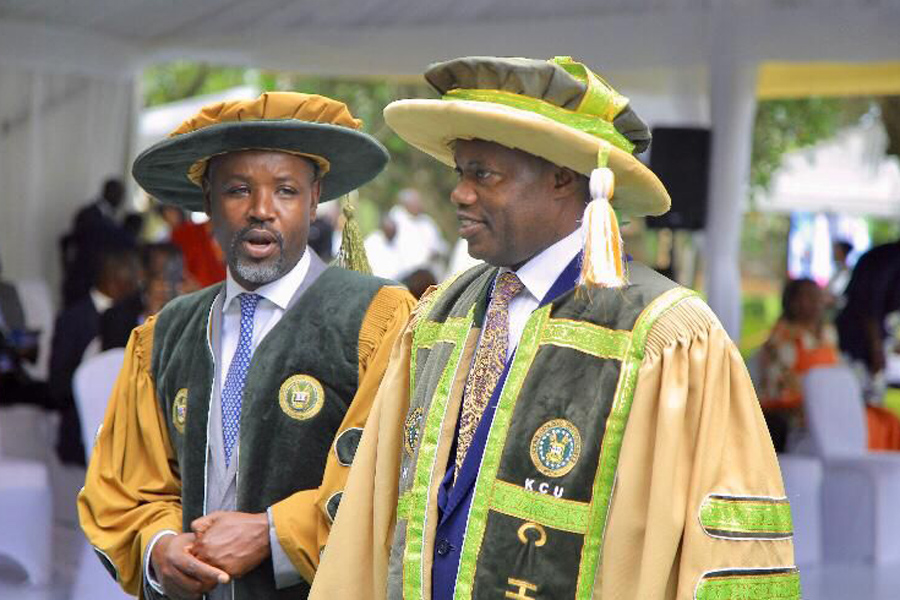Organ trafficking: Gov’t revokes mandatory testing for Ugandans flying to Middle East for work
Government has rescinded its recent requirement for all Ugandans flying out and those returning from Middle East for work.
In the wake of increased cases of organ harvesting, government had in June announced mandatory testing for all Ugandans going abroad, especially to Middle East countries for work and those returning home because of the same purpose.
Keep Reading
- > PPDA asks districts to use use alternative procurement processes to avoid returning money to consolidated fund
- > Uganda to introduce national children play day
- > Review courses before licencing universities, Tayebwa asks gov't
- > Minister Among calls for social protection for workers in informal sector
This was to be done at the cost of those flying out the country or returning and it was to be done at UMC Victoria Hospital in Bukoto .
However, addressing journalists on Monday, the Ministry of Internal Affairs spokesperson, Simon Mundeyi said government has revoked the requirement.
“The Minister of Internal Affairs has revoked the requirement for medical examination for those going to Middle East to do labour. They have revoked it after realizing it costs some bit of money and on an understanding the girls already have medical examination done by their companies and Ministry of Gender,” Mundeyi said.
According to the spokesperson, the Internal Affairs Minister received petitions from several groups of people and after consultations, he accepted to revoke the requirement.
“Because the minister cares about Ugandans on those fees, he revoked the requirement.”
Last week, the Internal Affairs Minister, Gen Kahinda Otafiire defended the testing as one meant to protect Ugandans from being exploited by anyone or have their internal organs removed.
He insisted that the fees charged for testing are not exorbitant as was being said especially by labour companies.
“They(labour companies) are after money but mine is the welfare of Ugandans. This is meant to ensure all their internal organs are intact,” Otafiire told journalists in Kampala.
Background
There are so many Ugandans working in Middle East countries including Bahrain, Kuwait, Oman, Qatar, Saudi Arabia and the United Arab Emirates.
However, of late, several reports of Ugandans, especially those working in Middle East countries who have had their internal body organs, especially kidneys harvested have increased.
The directors of Nile Treasure Gate, a labour export company are currently on remand in Luzira for taking abroad a Ugandan migrant worker whose kidney was later removed while working in Jeddah, Saudi Arabia.
Judith Nakintu, was recruited in 2019 by Nile Treasure Gate Company as a housemaid to work in Jeddah, Saudi Arabia and flew on December 12, 2019.
However, while working as a housemaid Saad Dhafer Mohamed Al-Asmari , Nakintu lost her right kidney in questionable circumstances while at King Fahad Hospital in Jeddah, Saudi Arabia.
Whereas authorities in Saudi Arabia said she had been involved in an accident that left her paralysed, a medical examination and subsequent report done in Uganda indicated that her right kidney was missing.
So many other cases have been reported but some have turned out to be fake.
Labour export companies under their umbrella body, Uganda Association of External Recruitment Agencies have always blamed government for the plight of Ugandans working abroad.
“There is no integrated framework for the monitoring of the welfare of migrant workers. We have seen some countries like Philippines have put in place a monitoring mechanism for their migrant workers and is funded and taken care of by government but the same is not the case for Uganda. However, the Ugandan government has shifted this burden to individual companies yet this is not possible,” said UAERA chairperson, Baker Akantambira recently.
“You are well aware that a director of a company in Uganda cannot do much outside Uganda. The most he can do is making a telephone call to find out the wellbeing of the person they externalized. The legal framework in that country is a problem. A girl is in a house suffering, what can you do as a director of a company here in Uganda to save her? The monitoring framework should be national and government should do this.”
Uganda and the Kingdom of Saudi Arabia in 2021 signed a bilateral agreement in which they agreed on mechanisms for orderly and safe labour export but not any other countries.
“Ugandans are already in Oman, Kuwait, UAE and many other countries but our government doesn’t have bilateral agreements with these countries. This means Ugandans are working under unclear circumstances. It means follow up and monitoring of the employer’s actions is very difficult. The bilaterals should be fixed as soon as yesterday. Why does it take many years for a government to government to fix a bilateral,” Akantambira noted.
“If some Ugandans are not tracked well, especially in countries that don’t have bilaterals, they can be a security risk. Don’t be surprised a youth who was recruited as a driver going to UAE ends up in a neigbouring country joining the negative forces.”
















